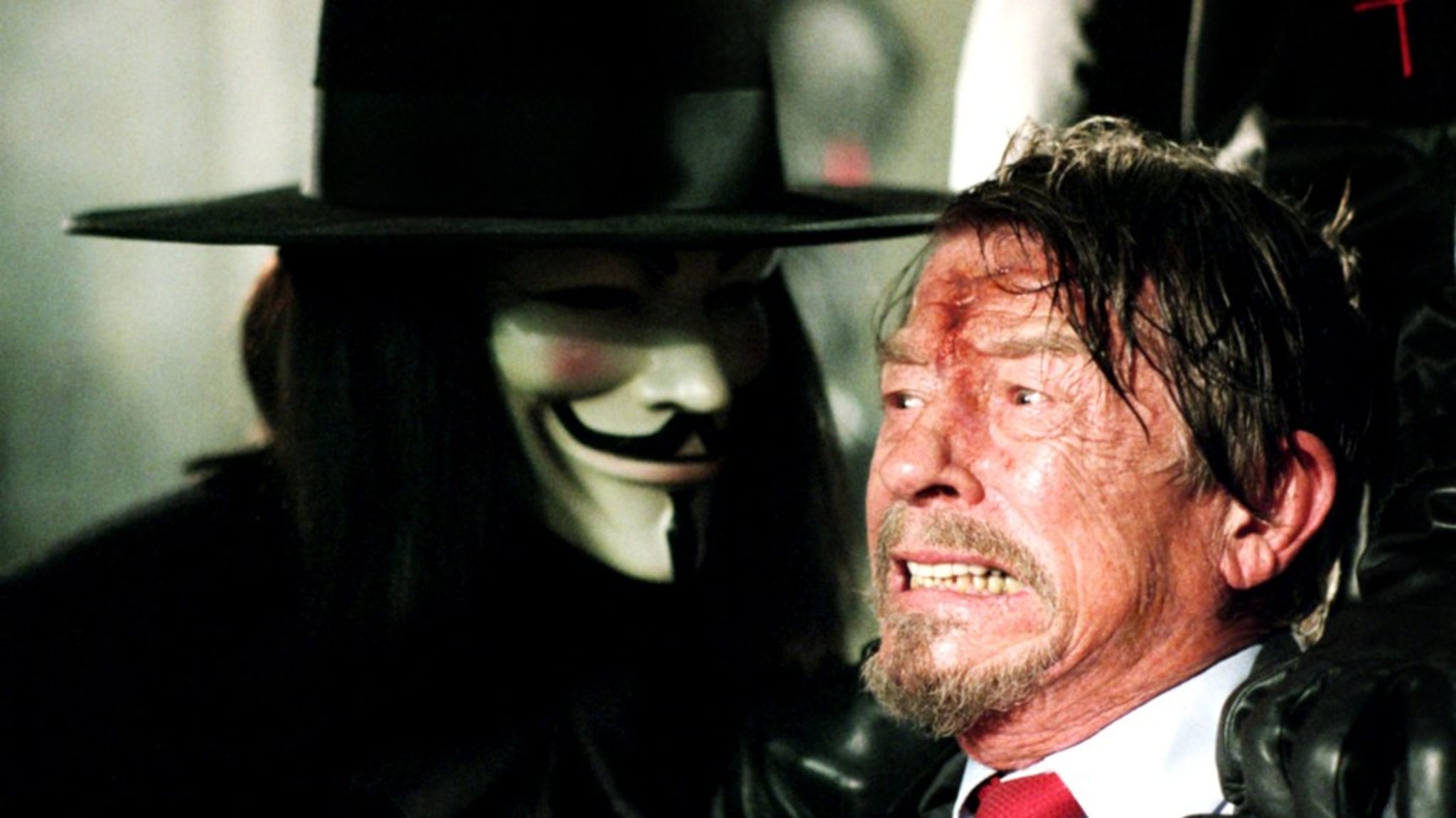

And like totalitarianism, film tends to destroy, or at least maim, everything it touches. The trouble is, film itself has a totalitarian dimension unlike a novel, it takes away our ability to imagine for ourselves.


Like Orwell, their vision is not technological but moral.

To their great credit, the filmmakers avoided this sort of thing. It arrives on the heels of two years of Orwelliana in the media, much of it futuristic nonsense trivializing Orwell as a novelistic Alvin Toffler predicting which gismos we would be using by now. The film 1984, unfortunately, is poorly timed. The tortured hero, Winston Smith, shows that he understands the situation by scrawling GOD IS POWER while being cured of “thought crime.” “If you want a vision of the future,” says O’Brien, kind of a Grand Inquisitor character, “imagine a boot stamping on a human face, forever.” This is the vision of 1984, a godless world of fear and loathing, of chronic war and shortages, of the Lie and Doublethink, of a materialist puritanism. George Orwell claimed in his latter years that every line he wrote was “against totalitarianism.” Should this system triumph, he believed, all human values would perish. Suzanna Hamilton is Julia, a fierce little war orphan whose rebellion is basically inspired by her hungers.Virgin Films, written and directed by Michael Radford no rating. John Hurt, with his scrawny body and lined and weary face, makes the perfect Winston Smith and Richard Burton, looking so old and weary in this film that it is little wonder he died soon after finishing it, is the immensely cynical O'Brien, who feels close to people only while he is torturing them.
1984 JOHN HURT MOVIE MOVIE
What is remarkable about the movie is how completely it satisfied my feelings about the book the movie looks, feels, and almost tastes and smells like Orwell's bleak and angry vision. 1984 must be one of the most widely read novels of our time. Then Smith is summoned to the office of O'Brien, a high official of the "inner party," who seems to be a revolutionary too, and gives him the banned writings of an enemy of the state. The note says, "I love you." Smith and Julia become revolutionaries by making love, walking in the countryside, and eating strawberry jam. Into Smith's world comes a girl, Julia, who slips him a note of stunning force. He methodically scratches out old headlines, obliterates the photographs of newly made "unpersons," and attends mass rallies at which the worship of Big Brother alternates with numbing reports of the endless world war that is still going on somewhere, involving somebody. The film opens with Smith rewriting history: His task is to change obsolete government documents so that they reflect current reality. There is not a single prop in this movie that you couldn't buy in a junkyard, and yet the visual result is uncanny: Orwell's hero, Winston Smith, lives in a world of grim and crushing inhumanity, of bombed factories, bug-infested bedrooms, and citizens desperate for the most simple pleasures. The movie's 1984 is like a year arrived at through a time warp, an alternative reality that looks constructed out of old radio tubes and smashed office furniture. Michael Radford's brilliant film of Orwell's vision does a good job of finding that line between the "future" world of 1984 and the grim postwar world in which Orwell wrote.


 0 kommentar(er)
0 kommentar(er)
